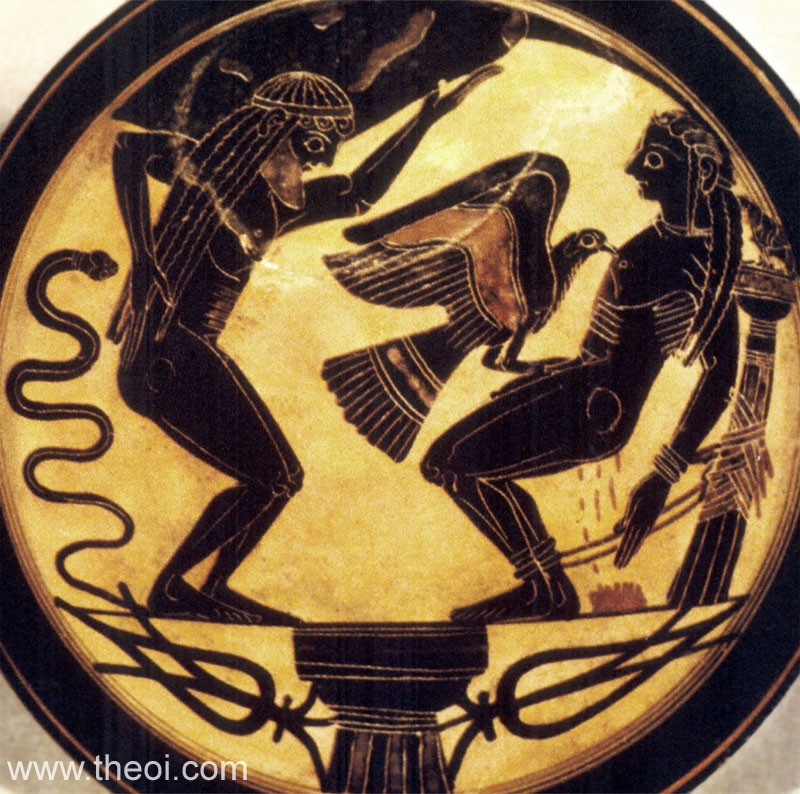Atlas, a powerful Titan in Greek mythology, is renowned for his enduring punishment: eternally holding the heavens on his shoulders. But why was Atlas condemned to this agonizing fate? This article delves into the reasons behind Atlas’s punishment, exploring the Titan War and his role in it.
The Titan War and Atlas’s Defiance
Before the Olympian gods reigned, the Titans, primordial deities of immense power, ruled the cosmos. Atlas, son of Iapetus and Clymene, was a prominent figure among them. However, a power struggle erupted, leading to the epic Titan War. This war pitted the Titans against the Olympian gods, led by Zeus, who sought to overthrow the old order.
 Titans Atlas and Prometheus, Laconian black-figure amphora C6th B.C., Vatican City Museums
Titans Atlas and Prometheus, Laconian black-figure amphora C6th B.C., Vatican City Museums
Atlas, fiercely loyal to his fellow Titans, including his brother Prometheus, fought valiantly against the Olympians. He championed Cronus, the leader of the Titans, against Zeus’s rebellion. This defiance of Zeus and the Olympian gods played a crucial role in Atlas’s eventual punishment.
The Punishment: Bearing the Weight of the Heavens
Following the Olympian victory in the Titan War, Zeus meted out punishments to the defeated Titans. Most were imprisoned in Tartarus, a dark abyss deep within the underworld. However, Atlas received a different, more agonizing fate.
Zeus condemned Atlas to bear the weight of the heavens upon his shoulders for eternity. This punishment wasn’t merely a physical burden; it symbolized Atlas’s role in opposing the new cosmic order. His eternal struggle represented the defeated Titans’ enduring resistance to Olympian rule. Some accounts specify that Atlas held up the sky, not the Earth, preventing it from collapsing onto Gaia, the primordial Earth goddess.
Variations on the Myth: Perseus and Hercules
The myth of Atlas’s punishment has several variations. One famous tale involves the hero Perseus, who encountered Atlas during his journey. Seeking shelter, Perseus was refused by Atlas, who feared a prophecy about the theft of his golden apples. In anger, Perseus used Medusa’s severed head to turn Atlas into stone, forming the Atlas Mountains in North Africa.
Another story features Hercules, tasked with retrieving golden apples from the Hesperides, nymphs who guarded them in a garden protected by Atlas. Hercules tricked Atlas into retrieving the apples while he temporarily held the heavens. Upon Atlas’s return, Hercules cleverly regained the apples and left Atlas to resume his eternal burden. This myth emphasizes Atlas’s strength and his longing for freedom from his punishment.
Conclusion: A Symbol of Enduring Struggle
Atlas’s punishment remains a potent symbol of enduring struggle and the consequences of defying authority. His story continues to resonate through literature, art, and popular culture, representing the burden of responsibility and the enduring power of myth. The myth of Atlas serves as a cautionary tale, a testament to the strength of the Olympian gods and the price of resisting fate.
